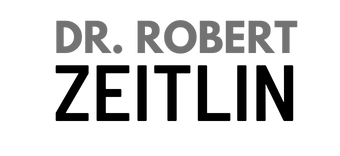I was almost on TV. Really.
I was almost picked to be the host of a new reality show. Yes, I have been on TV a couple times before. I was the expert interviewed on the news, answering questions about bullying and how parents can help their kids with fears about school shootings.
This time was different. I was invited to audition for a series. A production studio pitched me an idea where I would help people move forward in their lives. What an amazing opportunity!
Sadly, I didn’t get the part. But it’s just my first time at this. There will be plenty more opportunities coming in my future. It wasn’t random. I am making these things happen.
The production company called me because I did three things right: First, I decided to stop being a Secret Psychologist, letting the world know I was open for business. Second, I embraced the Law of Attraction, the Buddhist idea that when you put positive energy out to the universe, it will eventually come back to you. And finally, I met Nate who told me to think like a farmer. I put in the work. I plant, weed, water, and sharpen my tools. Every day. Day in, day out.
Evolving from Secret Psychologist to Farmer was life-changing. These moves actually changed the direction of my life. And I’ve only just begun! I’m only in year two. But none of those steps could have happened if I didn’t do one critical thing first: I reached an understanding with my Lizard Brain.
We all have a Lizard Brain. Our minds are naturally creative, finding new ways to do things. Watch a five-year-old play with a paperclip and you will see the pure genius that exists in all of us, inventing beautiful and incredible things. The genius part of your mind is younger, in evolutionary terms, than your survival instincts. Your genius is fueled by the frontal lobe, the part of your brain that sits right behind your forehead. The cerebellum, sitting at the base of your brain that connects with your spine, is where the Lizard Brain lives. The Lizard Brain always gets the last word. In his (must-read) book Linchpin, author Seth Godin described him as sitting by the light switch. If things start getting too overwhelming for the Lizard Brain, he shuts it all down.
I have wrestled with my Lizard Brain. I always lose. He always shut me down. If I wanted to try something new, he would say, “well, you could get embarrassed,” planting the seed of doubt and hesitation that could undermine my efforts. If I wanted to make a change, he would whisper in my ear, “you really don’t know how this is going to turn out.” And then if I made the move anyway, he would crank up my anxiety and give me heartburn and stomach trouble, tweaking my pain center until I had to seriously consider that something was physically wrong. The Lizard Brain succeeded when I would think, “maybe today isn’t the best time to do this.”
I lived my life this way, in an invisible prison made in my own mind. But something has changed in the last couple years. I stopped wrestling with my lizard brain. We have come to an understanding.
I took a major step out on a limb this summer. Responding to an invitation to tell a personal story in front of a live audience, I said “yes” and didn’t overthink the consequences. I’m far from a daredevil that acts first and thinks later. The risks I am taking are not life-threatening. I am stepping into challenging situations, outside of my comfort zone. And they don’t always go well. In fact, some are epic fails. But I always learn at least one new thing. And those new learnings are stacking up!

And here’s the beauty part, as my mother’s old boyfriend used to say: now you’re talking to our Lizard brains, too! Mine is listening.
Thanks Lorene! Our lizard brains are always listening, monitoring, and watching. We just need to speak their language, tell them soothingly that it will all be OK, and then prove to them with our actions that calculated risks are good for all parts of us.
You have been a great model for me of a leader who “dares greatly” and steps up to do what needs to be done. I am honored to work with you.